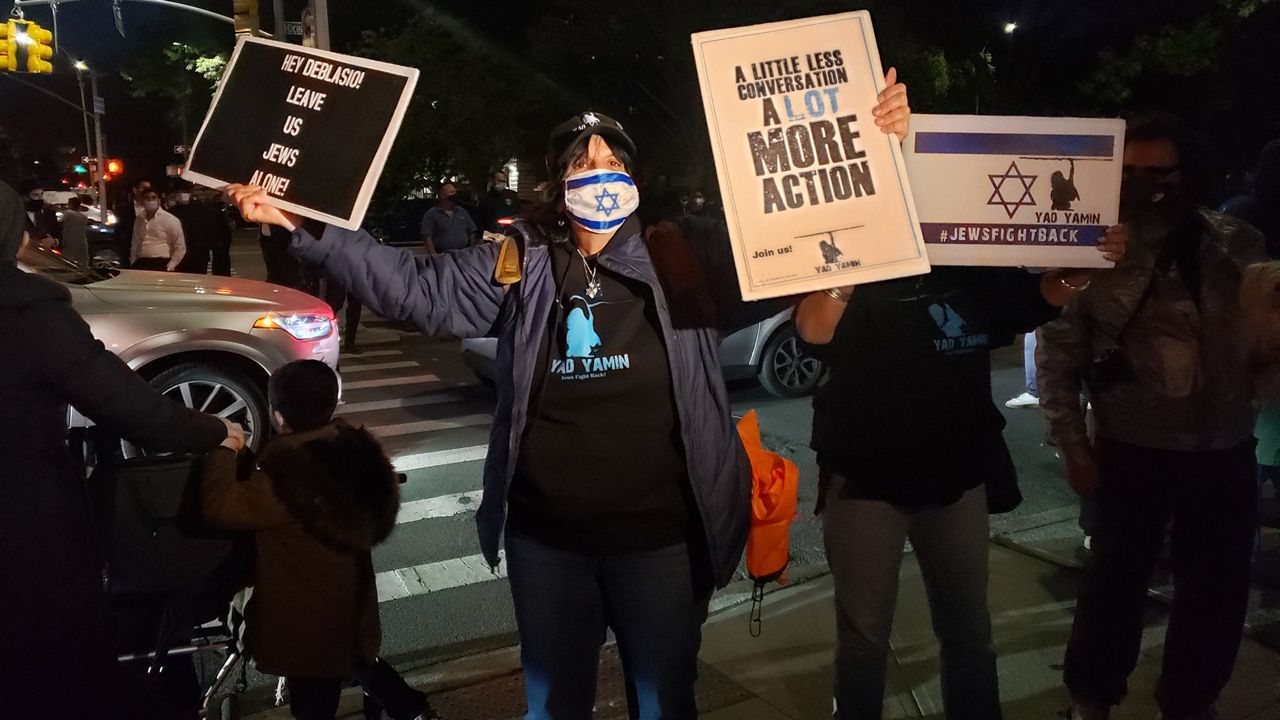Two federal lawsuits were filed against the state of New York Thursday in response to Governor Andrew Cuomo’s executive order limiting the number of people allowed to gather in houses of worship in areas experiencing the biggest coronavirus increases.
The order, which took effect in Brooklyn and Queens on Thursday, limits religious services based on the coronavirus positivity rate. In coronavirus clusters known as "red zones,” religious services are capped at 25 percent capacity or no more than 10 people. In less problematic areas, known as “orange zones,” capacity is limited to 33 percent or 25 people maximum.
The rules are part of a package of restrictions aimed at stemming a potential second surge of coronavirus cases in the city and in other parts of the state, including Rockland and Orange counties. The restrictions also shut down schools and nonessential businesses.
The lawsuits were filed separately by Agudath Israel Of America, an Orthodox Jewish organization, and The Roman Catholic Diocese of Brooklyn.
Speaking to NY1 Thursday, Bishop Nicholas DiMarzio, the Bishop of Brooklyn, called the decision an "unprecedented step."
"I don't know if we've ever filed for an injunction. Certainly not in my 17-year history,” he said.
The lawsuits come after days of protests in Borough Park, where demonstrators forcefully complained the restrictions were targeting the Orthodox Jewish community. Some of the protests turned violent as some demonstrators lit a fire in the middle of a street and two men, Jacob Kornbluh and Berish Gertz, were attacked. Kornbluh said he was kicked at, pulled and punched in a crowd of hundreds late Wednesday night, and Gertz told police three to four people kicked and punched him in the face, neck and back early that day.
The filing by Agudath Israel of America states the governor’s restrictions explicitly target the Orthodox Jewish community, which is in the midst of celebrating three holidays—Hoshanah Rabbah, Shmini Atzeres, and Simchas Torah. The memorandum also states that the governor’s order makes it impossible for tens of thousands of Orthodox Jews in New York state to comply with their religious obligations and violates their First Amendment right to freely exercise their religion.
“This lawsuit is a last resort,” Agudah’s Chairman of the Board Shlomo Werdiger said in a press release. “We would have been able to accomplish much more for these critical public health needs had the governor’s administration worked together with us more closely beforehand. We look forward to working with them next time. Unfortunately, the Governor’s new executive order makes it impossible for us to practice our religion, and we really had no choice but to seek relief in the courts.”
The lawsuit filed by The Roman Catholic Diocese of Brooklyn also argues that the order violates their First Amendment right. It states that over two dozen churches within their diocese will be forced to close, despite the lack of any COVID-related incidents on their premises since reopening their doors.
“Public officials have a sacred duty to do right by those they serve, but this is simply wrong and wrong-headed," said Randy Mastro, the attorney representing the Diocese, in a press release Thursday. "If this latest executive order stands, parishioners won't be able to go to Mass this Sunday, even though the Diocese has done everything right to ensure safe conditions in its churches. Thus, this religious community will be denied its most fundamental right -- the free exercise of religion --for no legitimate reason whatsoever. That's why we've gone to court -- to prevent this injustice from occurring -- so we're asking the court to block this executive order from going into effect as applied to the Diocese's churches."
According to the diocese, they’ve worked closely with the former New York City Office of Emergency Management Commissioner Joseph Esposito to develop a safe reopening plan for all churches after shutting their doors for Mass for 16 weeks.
DiMarzio told NY1 they are already taking the necessary precautions to minimize transmission of the virus.
"They are places of harbor for people, physically but also spiritually. They are cleaned frequently, as much as we can, and there's social distancing, and no one is admitted without a mask," he said.
Both lawsuits also take issue with the governor’s decision to close schools in both communities based on the infection rate in parts of Brooklyn and queens.
In a response to the lawsuits, a senior adviser to Gov. Cuomo told NY1, “We've been sued virtually every day for every action taken. We're concentrating on reducing the virus in these hot spots and saving lives, period."
Residents on the streets of Borough Park who spoke to NY1 Thursday supported the decision to take this issue to court.
“We're here to fight for our religious freedom," said one person. "This is a complete discrimination against our zip codes.”
"This country has taken God out of all contexts. There is no God anymore. The church, shul, mosque, all of that should be essential," said another. "We're religious, and everyone is entitled to religious beliefs, and we're entitled to go and pray.”
In Midwood, about two dozen residents criticized the restrictions, as well as the mayor and governor, during a rally outside Congregation B'nai Josef.
Residents said they felt targeted by the city and state, and that they believe their community can practice religion safely.
"We want to give them a proper Jewish education. We want to go to the synagogue. We want to pray there. And there is no reason we should be vilified as a group and totally stepped on because of that," said one person at the rally.
"We've been living with the Torah for many thousands of years, so we don't wait for the governor to tell us how to guard our lives," said another.
"In March, I agree that we had to close down, but now, it's not the same anymore," said a third. "Our kids need to go back to school, and we're gonna stand up for it, and we're not giving up."



